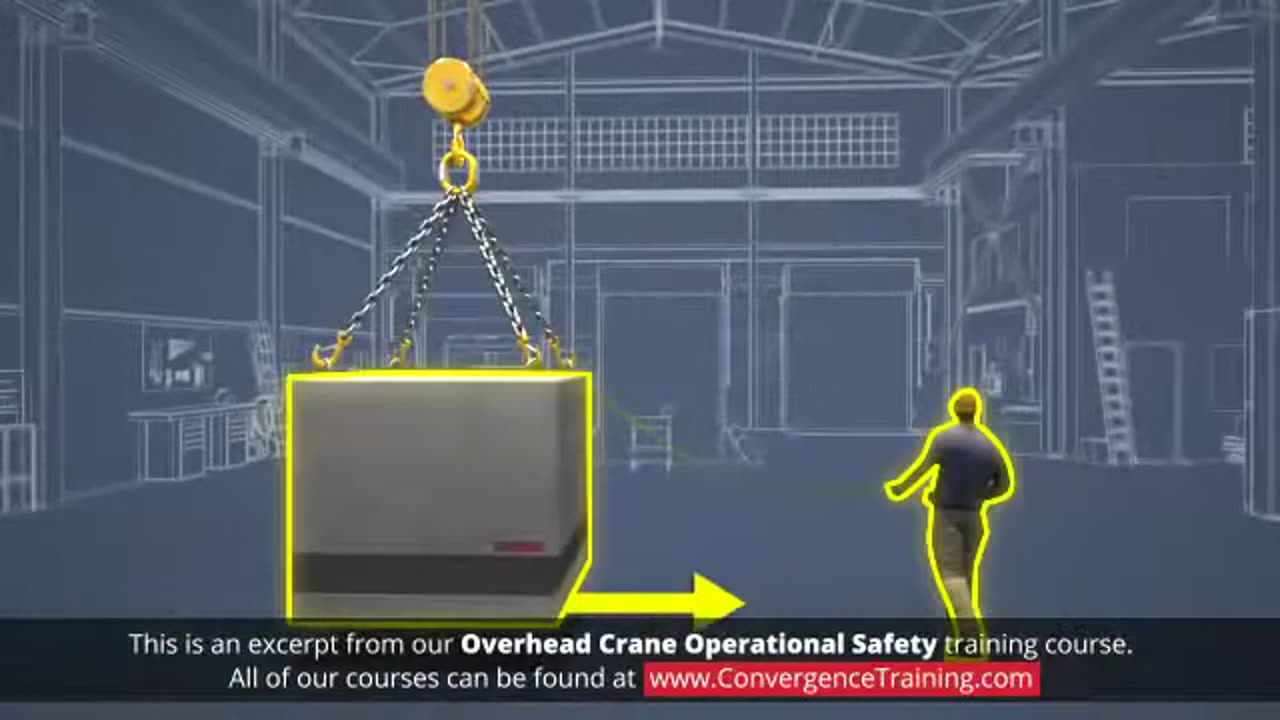Premium Only Content

Overhead Crane Operational Safety for Canada
Operating overhead cranes in Canada requires strict adherence to safety protocols as outlined in federal and provincial regulations. Here's a summary of key considerations for overhead crane operational safety:
---
### **1. Regulatory Standards**
- **Canadian Standards Association (CSA):** The CSA has specific standards for cranes, including **CSA B167-16** (Safety Standard for Overhead Cranes, Gantry Cranes, and Monorails).
- **Occupational Health and Safety (OHS):** Provincial OHS laws regulate the operation, inspection, and maintenance of overhead cranes.
- **Workplace Hazardous Materials Information System (WHMIS):** Operators must be aware of WHMIS protocols when working near hazardous materials.
---
### **2. Operator Requirements**
- **Training and Certification:**
- Operators must complete a certified crane operation training program.
- Familiarity with equipment-specific controls and load limits is essential.
- **Medical Fitness:**
- Operators should meet medical and vision standards to safely operate the crane.
- **Knowledge of Signals:**
- Operators must understand standard hand signals used for crane operation.
---
### **3. Pre-Operational Safety Checks**
- **Visual Inspection:**
- Inspect for wear and tear on cables, hooks, and structural components.
- Check for leaks, loose bolts, or mechanical issues.
- **Functionality Tests:**
- Test the brakes, emergency stop, and other controls before operation.
- **Load Limit Verification:**
- Ensure the load does not exceed the crane’s rated capacity.
---
### **4. Safe Operational Practices**
- **Load Handling:**
- Center the load directly under the crane hook.
- Avoid sudden movements like jerking or swinging.
- **Prohibited Actions:**
- Never carry loads over personnel.
- Avoid side-pulling or dragging the load.
- **Communication:**
- Maintain clear communication with the ground crew using hand signals or radios.
---
### **5. Emergency Preparedness**
- Operators must know:
- Emergency stop procedures.
- Protocols for power failure or mechanical breakdown.
---
### **6. Maintenance and Inspections**
- **Daily Inspections:**
- Conduct pre-use and post-use checks.
- **Periodic Maintenance:**
- Follow manufacturer-recommended schedules.
- Engage qualified professionals for repairs and advanced inspections.
---
### **7. Environmental Considerations**
- Avoid operations in extreme weather conditions like high winds or freezing rain unless equipment is rated for it.
---
### **8. Documentation**
- Maintain detailed records of inspections, maintenance, and operator certifications.
---
Let me know if you'd like a specific checklist or further details on any of these points!
-
 7:58
7:58
HSESafetyInformation
8 months agoAuthentic Peshawari Rosh _ Namkeen Gosht Recipe __ Traditional KPK and Baluchistan
741 -
 52:16
52:16
American Thought Leaders
16 hours agoIs There a Link Between Mass Shootings and SSRIs?
18.3K22 -
 17:12
17:12
World2Briggs
17 hours agoTop 10 Towns You Can Retire or Live on $1900 a month in the Midwest #1
1.88K1 -
 17:25
17:25
BlackDiamondGunsandGear
1 day agoCustom Building the Cheapest MP5
4.24K1 -
 LIVE
LIVE
BEK TV
23 hours agoTrent Loos in the Morning - 11/06/2025
214 watching -
 8:10
8:10
The Shannon Joy Show
17 hours agoShould we even VOTE anymore?
6.33K14 -
 59:34
59:34
Dialogue works
1 day ago $0.02 earnedMohammad Marandi: It’s WAR: Iran’s Supreme Defense Council ACTIVATES –Hezbollah REFUSES to Surrender
39.8K10 -
 10:23
10:23
TheSaltyCracker
17 hours agoMuslims Immediately Threaten New Yorkers After Zohran Win
34.5K434 -
 18:40
18:40
Actual Justice Warrior
17 hours agoMamdani Pledges To DESTROY New York
21.3K51 -
 28:53
28:53
iCkEdMeL
16 hours ago $0.03 earnedBREAKING: 9 DEAD After UPS Plane BURSTS Into Fireball at Louisville Airport
28.5K7